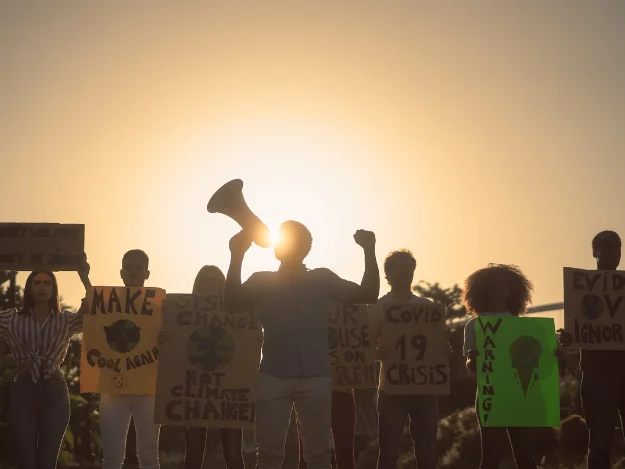
The Right to Protest
Welcome to Voices on the Line, where we explore the intersection of rights, resistance, and reality. I am Arjan, and in today’s episode we will ask ourselves a critical question:
Is the right to protest being eroded—especially for students?
Across the world, from Columbia University in New York to Sciences Po in Paris, students have taken a stand to express their views on the war in Gaza. But increasingly, their peaceful protests are being met with harsh consequences.
Let’s start in the United States.
At Columbia University, students held peaceful demonstrations—setting up encampments and occupying a campus building to protest U.S. support for Israel and demand that the university divest from companies tied to the Israeli military. In response, Columbia suspended students, revoked diplomas, and even threatened expulsion.
While the university claimed the students violated campus policies, critics say the punishments were excessive and meant to silence dissent. The protests, according to many students, were entirely peaceful.
But the backlash didn’t stop at the university level. Immigration and Customs Enforcement, or ICE, arrested several student protesters. Some were green card holders, others were international students. One was detained while waiting to become a U.S. citizen, and another was deported after publishing a piece about Palestine.
These actions raise serious legal concerns. In the U.S., the First Amendment of the Constitution protects the rights to freedom of speech, assembly, and political expression. While private universities like Columbia can enforce their own codes of conduct, the involvement of federal immigration authorities in response to peaceful protest raises questions about targeted retaliation and the chilling of free speech—especially when those arrested had not committed any criminal offense.
Now let’s look at what happened in France.
At Sciences Po, one of the country’s most prestigious universities, students staged sit-ins in solidarity with Palestinians. The government responded by sending in the police, who forcibly removed 91 students. Some were arrested, and public funding for the school was suspended.
French officials claimed the protests could cause disorder or promote antisemitism. But human rights groups and students argue this is an excuse to suppress political expression. Amnesty International called France’s ban on pro-Palestinian protests a “disproportionate attack” on the right to protest.
These actions appear to contradict both Article 10 and Article 11 of the European Convention on Human Rights, which guarantee freedom of expression and the right to peaceful assembly. France is legally bound by this convention so such sweeping bans—especially when protests are peaceful—are incompatible with international human rights law.
In both countries, we see a troubling pattern: peaceful protest rebranded as a threat, students punished for their beliefs, and institutions prioritizing order over open expression.
Legally, the right to protest is protected, in the U.S by the First Amendment and in France, under the Constitution. But in practice, this right is becoming harder to exercise—especially when the cause is politically sensitive.
What’s the difference between these two countries?
In the United States, the First Amendment offers strong protections. But enforcement is uneven. Protests about certain issues—like gun control—are tolerated, while those about Palestine face harsher consequences, showing how legal protections can be undermined by political agendas.
In France, protest rights are also protected, but the government can ban demonstrations preemptively if they’re seen as a threat to public order. This has been used repeatedly to shut down pro-Palestinian protests, even when they were peaceful.
So while the legal frameworks differ, the outcome is similar: students are discouraged or punished for exercising their rights, especially when their message challenges dominant narratives or state policies.
So, is the right to protest being eroded?
Yes, it is—especially when institutions use legal or bureaucratic tools to discourage participation. The laws protecting protest still exist. But when the consequences for using that right are this severe, the right becomes less accessible and less meaningful.
Free speech doesn’t mean much if exercising it leads to deportation. Peaceful assembly loses its power if it results in police removal or academic retaliation. And when democratic governments fail to uphold their own laws, they send a clear message: protest is tolerated only when it's convenient.
The erosion is not total—but it’s real, and it’s growing. If we want rights like freedom of expression and protest to remain more than symbolic, they must be defended not just in courts and constitutions, but in how we treat those who exercise them.